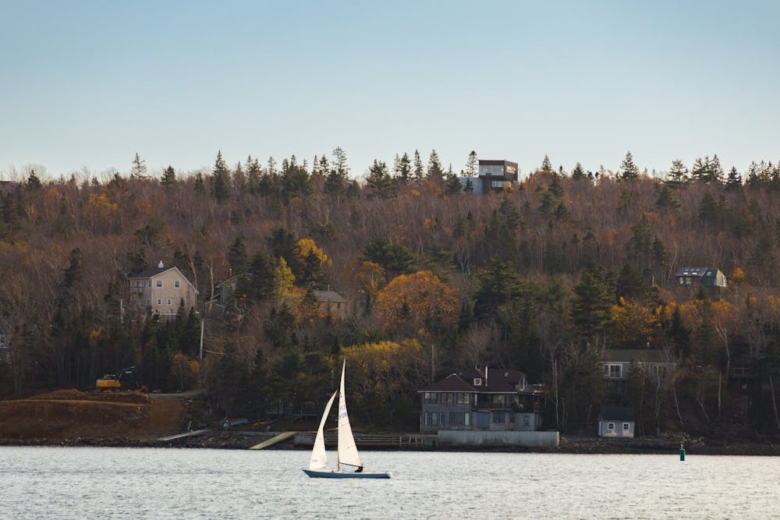Navigating Nova Scotia Short-Term Rental Regulations: A Guide for Hosts
So, you’re looking to host a short-term rental in the stunning province of Nova Scotia. With its breathtaking landscapes, from the Cabot Trail to the shores of Lunenburg, it’s no wonder that “Canada’s Ocean Playground” is a top destination for travelers. But before you can start welcoming guests, it’s crucial to understand the Airbnb regulations in Nova Scotia.
Navigating regulations can feel overwhelming, but it doesn’t have to be. This guide is designed to demystify Nova Scotia’s short-term rental regulations, giving you the clear, straightforward information you need. We’ll break down everything from provincial registration to municipal by-laws, helping you launch and grow your rental business.
Don’t see the form to download our Short-Term Rental Agreement? Click here.
Is Airbnb allowed in Nova Scotia?
Yes, Airbnb and other short-term rentals (STRs) are allowed in Nova Scotia. However, to operate legally, all hosts must comply with provincial Nova Scotia short-term rental rules, chiefly the Tourist Accommodations Registration Act. This involves registering your property with the province and adhering to any additional rules set by your local municipality.
Is Airbnb profitable in Nova Scotia?
Yes, many hosts find Airbnb profitable in Nova Scotia, thanks to its thriving tourism sector. Popular destinations like Halifax, Cape Breton, and the South Shore attract visitors year-round.
However profitability depends on compliance with Nova Scotia Airbnb regulations, effective marketing, and competitive pricing. Understanding and adhering to the new regulations can help maximize your rental’s potential.
Nova Scotia short-term rental regulations
The Government of Nova Scotia has established a clear framework to manage the growing short-term rental market. The primary goal of these rules is to ensure accommodations are safe, track the growth of the tourism industry, and help municipalities manage housing needs. The main piece of legislation you need to be familiar with is the Tourist Accommodations Registration Act.
Registration requirement
All hosts offering accommodations for 30 consecutive days or less must register their property with the provincial Tourist Accommodations Registry. This applies to any type of property you rent, whether it’s a room in your home, a full house, or a backyard bunkie.
According to the Government of Nova Scotia, you must register before you advertise or operate your rental. The online application requires the following information:
- Property address
- Number of bedrooms
- Your contact information (name, mailing address, email and phone number)
- Confirmation of property ownership
You can complete the registration process through the official Nova Scotia Tourist Accommodations Registry online portal.
Registration fee
As of 2024, registration with the provincial registry is free of charge. The government of Nova Scotia has currently waived the fees to make it easier for hosts to comply.

Platform registration
Once your registration is approved, you will receive a registration number. This number is your key to operating legally. You must display this registration number on all online advertisements and listings for your property. This includes platforms like Airbnb, Vrbo, Booking.com, and even your own direct booking website.
This requirement provides transparency for guests and helps the province and municipalities with enforcement.
Municipal compliance
While the province of Nova Scotia sets the baseline rules, you must also comply with your local municipality’s by-laws. These rules can vary significantly from one area to another and may be stricter than the provincial requirements.
For example, the Halifax Municipality (HRM) has specific land-use by-laws that dictate where and what type of short-term rentals can operate. Other municipalities, like Victoria County and the Town of Lunenburg, have also implemented their own distinct regulations.
It is your responsibility as a host to research and follow your local rules. The best first step is always to check your municipality’s official website or contact their planning department directly.
Primary residence exception
The concept of a “primary residence” is a key factor in many municipal by-laws. In some areas, there is a distinction between renting out your own home versus renting a secondary, commercial property.
In Halifax, for example, the rules are different depending on this status:
- Primary residence: You can operate a short-term rental in your primary residence across most of the municipality.
- Secondary residence: You can only operate a short-term rental in a secondary property (one you don’t live in) if it’s located within a specific commercial zone.
This rule is designed to limit the conversion of residential housing into full-time tourist accommodations. Always check your local by-laws to see if a primary residence exception applies to you.

Nova Scotia short-term rental taxes
Nova Scotia short-term rental regulations state that hosts are required to collect and remit Harmonized Sales Tax (HST) on their rental income. In some areas, a marketing levy is also required.
- Harmonized sales tax (HST): In Canada, if your business earns more than $30,000 in revenue over four consecutive calendar quarters, you are required to register for, collect, and remit GST/HST. In Nova Scotia, the HST rate is 15%.
- Marketing levies: Some municipalities charge an additional levy on accommodations to fund tourism marketing initiatives. For example, Halifax imposes a 3% marketing levy on all room revenues.
Managing taxes can be complex, but getting it right is essential for your business’s long-term success.
FAQs about Nova Scotia Airbnb rules
Here are quick answers to some of the most common questions about Airbnb rules in Nova Scotia.
What are the new rules for Airbnb in Nova Scotia?
The most significant new rule for Airbnb hosts in Nova Scotia is the mandatory provincial registration system, which came into effect on April 1, 2023. Under the Tourist Accommodations Registration Act, all hosts must register their property with the province and display their registration number on all online listings to operate legally.
What is a noncompliant short-term rental in Nova Scotia?
A noncompliant short-term rental in Nova Scotia is any property rented for 30 days or less that meets one or more of the following conditions:
- It is not registered with the provincial Tourist Accommodations Registry.
- It is advertised online without displaying a valid registration number.
- It violates local municipal by-laws regarding zoning, primary residence requirements, or other restrictions.
What is the short-term rental association in Nova Scotia?
While there isn’t one single, official Nova Scotia short-term rental association for the entire province, several host-led advocacy and community groups exist. These groups often form at the local level to share information, advocate for fair regulations, and build a community of hosts. Searching for host groups in your specific area, such as Halifax or Cape Breton, on social media platforms can be a great way to connect.

Set yourself up for success with your short-term rental
Navigating the short-term rental regulations in Nova Scotia is the critical first step to building a thriving business. By understanding the requirements and leveraging the right tools, you can focus on providing exceptional guest experiences while growing your rental business.
Once you have your compliance in order, the next step is to streamline your operations and maximize your bookings. Logify’s all-in-one vacation rental software empowers you to do just that. With tools to manage your listings, sync calendars across platforms like Airbnb and Vrbo, and even build your own direct booking website, you have everything you need to grow your business on your own terms.
Want to see for yourself? Sign up for a free 7-day trial.
Don’t see the form to download our Short-Term Rental Agreement? Click here.